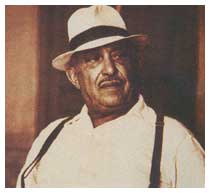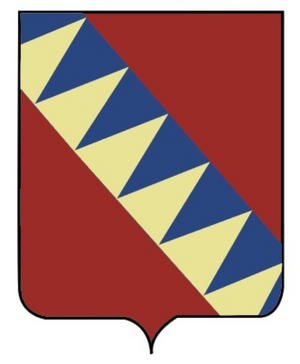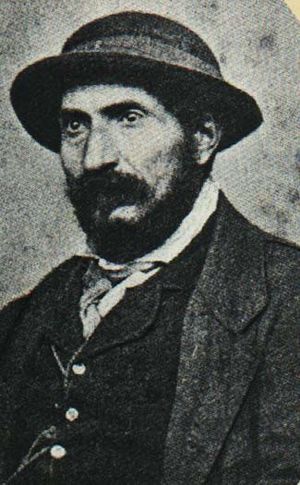Discover Your Roots
SIGN UPDiscover Your Roots
SIGN UPGiuseppe is a male name of Italian origin, meaning "God Will Add" or "Increase." It is the Italian form of the name Joseph, originating from the Latin Iōsēphus and the Ancient Greek Ἰωσήφ, ultimately derived from Hebrew יוסף. In Italy, Giuseppe is the most common name and is predominantly used for males. The feminine forms of the name are Giuseppa or Giuseppina. Notable individuals with the name Giuseppe include artists and musicians such as Giuseppe Verdi, clergymen and saints like Giuseppe Moscati, politicians including Giuseppe Garibaldi, scientists and engineers such as Giuseppe Peano, soldiers and policemen like Joseph Petrosino, and sportsmen like Giuseppe Meazza. The name has historical significance and widespread usage, particularly in Italian culture.

Giuseppe Rossi, born on February 1, 1987, is a former professional footballer known for his career as a forward in Europe and the United States. He played for clubs such as Villarreal, Fiorentina, and Real Salt Lake, as well as representing Italy at international level. Rossi's prolific performances in the Spanish La Liga earned him the nickname Pepito Rossi. Born in the United States to Italian immigrant parents, Rossi's passion for soccer was influenced by his father, who coached and taught the sport. His career began with Parma's youth team before moving to Manchester United. Rossi's impressive goal-scoring abilities were evident throughout his career, including his time with Villarreal, where he became the club's all-time top scorer. He later joined Fiorentina, showcasing his talent before injuries affected his playing time. Rossi's journey in football is a testament to his dedication and skill, leaving a lasting impact on the sport.

Giuseppe Andrews, born Joey Murcia Jr. on April 25, 1979, is a multifaceted American talent widely recognized for his work as an actor, screenwriter, director, and singer-songwriter. He gained prominence for his portrayal of Lex in the 1999 film Detroit Rock City and as a sheriff's deputy in Cabin Fever (2002). Additionally, Andrews made notable appearances in The Smashing Pumpkins videos "1979" and "Perfect." His distinct filmmaking style draws comparisons to renowned directors such as John Waters and Harmony Korine, characterized by cinéma vérité-meets-exploitation. Growing up in trailer parks significantly influenced his artistic vision, with many of his films centering on these environments and their residents. Andrews is also a prolific musician, having self-released numerous albums such as "Night Owl" and "Race Cars." Despite his multifaceted career, Andrews withdrew from the public eye in 2015, leaving fans and industry peers puzzled about his whereabouts. His enigmatic persona and fiercely original approach to filmmaking continue to captivate audiences and critics alike, cementing his status as a true auteur in the realm of independent cinema.

Giuseppe Genco Russo (26 January 1893 – 18 March 1976) was a prominent Sicilian Mafia boss known for his uncouth and sly nature. Also referred to as "Zi Peppi Jencu," Genco Russo was recognized for his strong political connections and often appeared in photographs with influential figures such as bishops, bankers, civil servants, and politicians. Despite his significant wealth and political involvement, he maintained a simple lifestyle, keeping a mule in his house and using a basic outdoor toilet. Genco Russo, along with Calogero Vizzini, represented the traditional archetype of the "man of honour" in Sicilian Mafia culture during the early to mid-20th century. While he initially gained influence through violent means, he later transitioned to primarily legal sources of power and became a figure of "order" within the Mafia. Genco Russo's integration into the official power structure was swift, and he eventually controlled large estates, including the Polizzello estate where he had previously worked as a goatherd. Following World War II, he successfully established himself as a prominent political figure, reflecting his transformation from a "man of honour" to a "man of order."

Giuseppe Zurlo, also known as Giuseppe Zurolo, was an influential Italian jurist and politician born on November 6, 1757, in Baranello. He hailed from the noble Neapolitan family Zurolo, also known as Zurlo. Throughout his life, Zurlo held prominent judicial and administrative roles within the Kingdom of Naples, including serving as Minister of Finance and Minister of the Interior during the French government (1806–1815) and the 1820 riots. Notably, as Minister of the Interior, he spearheaded the abolition of feudalism and implemented effective measures to resolve disputes. Zurlo was a fervent advocate for substantial governmental reform, drawing from his firsthand experience of the challenges faced by the Southern population. In 1827, he assumed the presidency of the Academy of Sciences. Despite his influential career, Zurlo faced financial difficulties and health issues towards the end of his life. He passed away in Naples on November 10, 1828, and his remains are interred in the ossuary of the SS. Trinità dei Pellegrini brotherhood. Throughout his lifetime, Zurlo authored several significant works, including reports on the state of the kingdom of Naples. His legacy remains an integral part of Italian history.

Giuseppe Caruso, also known as "Zi 'Beppe," was an infamous Italian brigand from Atella who became a prominent figure in the Lucan bands. His notoriety stemmed from his association with Carmine Crocco and his participation in various clashes with the national guard and the Italian army. Caruso, known for his strategic acumen and leadership, was responsible for numerous violent acts and the killing of 124 people during his time as a fugitive. However, his trajectory took a turn when he surrendered to General Fontana, betraying his former associates and ultimately contributing to the suppression of banditry in the Vulture. As a result of his collaboration, Caruso was granted a pardon by King Vittorio Emanuele II and later appointed as brigadiere of the forestal guard of Monticchio. He passed away in 1891 at the age of 72. Giuseppe Caruso's life has been depicted in films such as "They called them...bandits!" and "The General of the Brigands." His controversial and intriguing story continues to fascinate and captivate audiences.
All images displayed on this page are sourced from Wikipedia or Wikimedia Commons.We use these images under their respective Creative Commons or public domain licenses. Wherever applicable, author attributions and license information are provided. If you believe an image is used incorrectly or outside its license terms, please contact us so that we can review and correct the issue.